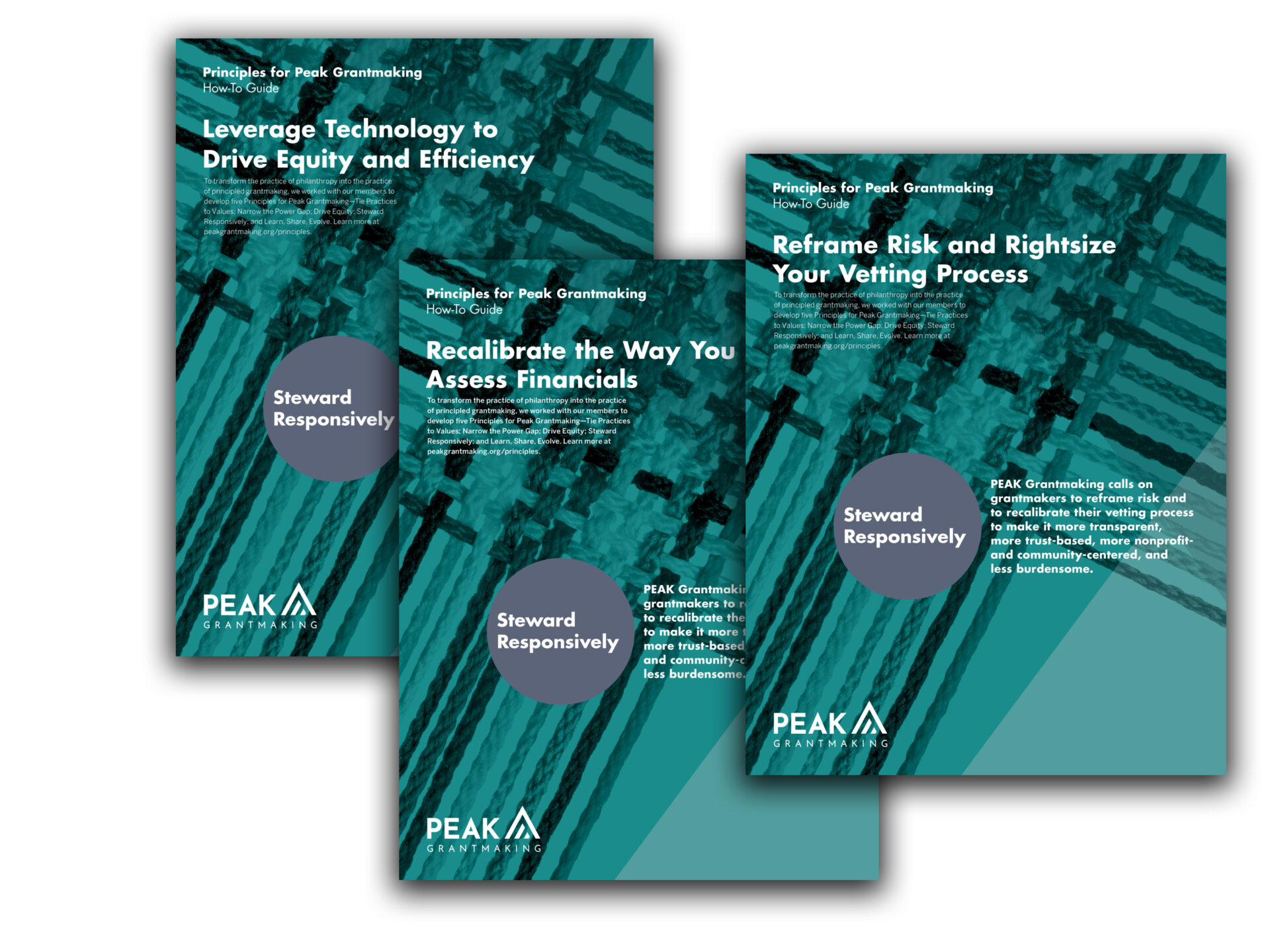Journal | Issue 14
Risk, Finances & Compliance
First Do No Harm: Reflective Practice for Grantmaking in the International Human Rights Context

When supporting social justice initiatives in countries where human rights are under threat, responsible grantmaking means taking additional steps to avoid putting grant recipients at risk. In keeping with the adage, “first do no harm,” the Arcus Foundation has implemented a self-reflective grantmaking program that involves grant recipients and stakeholders in its design.
In recent decades, grantmaking at the international level has, in many cases, become more difficult, restricted, and sometimes even dangerous for grant recipients as governments try to restrict foreign funds. In many regions of the world, government action is threatening the ability of non-governmental organizations (NGOs) and other civil society organizations (CSOs) to support their constituencies or even to continue to operate. Constrictive legislation and policies are often intended to prevent foreign organizations or individuals from providing funding or other support to in-country charitable organizations whose existence threatens power structures and the status quo. These efforts to deny organizations the resources they need to survive has been part of a growing trend referred to as “closing space,” a growing form of oppression in numerous countries.
While we as funders cannot control or easily influence what governments do, we can educate ourselves about the realities of the communities we serve. Having a better understanding of what grantmaking-related risks exist can strengthen our relationships with grantee partners, which can lead to greater impact.
Marginalized populations around the world are fighting to protect their communities and often their own lives. Grantmakers need to understand that certain grantmaking practices can impose additional, undue risk on the organizations they serve. Managing risk is a shared responsibility. A deeper understanding of alternative ways to operate in tough situations comes with more opportunity for change. Researching, thinking creatively, and sharing information about new and different practices and approaches within the legal framework is critical.
Five years ago, the Arcus Foundation developed a grantmaking initiative to combat discrimination and violence in and around Russia, where communities were being targeted based on people’s sexual orientation and gender identity. The country’s government had enacted a law forbidding the distribution of any information in support of “non-traditional sexual relations.”
As a moderate-sized funder with the ability to be nimble, Arcus was up to the challenge of combatting these human rights abuses. This was a particularly difficult undertaking that called for careful calculation of risk, both internally for Arcus and externally for our grantees. We didn’t want to go into this blindly or make assumptions about the needs of the people we intended to serve.
As noted in Open Road Alliance’s Risk Management for Philanthropy: A Toolkit, “Research shows that one of the primary barriers to successful risk management is a lack of transparency and trust between funders and nonprofits.” Historically, Arcus has taken a risk-based approach to much of its work, employing activities and methods to manage and control the risks that affect our ability to achieve goals. Nevertheless, we felt a need to study the risk inherent in this project as we perceived it to be greater than usual.
To begin with, the foundation had open, honest conversations with activists and other stakeholders working on these same issues to better understand the landscape we were about to enter. We have always firmly believed that the actors closest to issues are the most knowledgeable: we did not want to do this to them or for them, but rather to work closely with them to collaboratively drive change forward. Once we had gathered critical information, we took a hard look at our grantmaking practices to assess whether we could achieve the results we and our local partners wanted or if we needed to make changes.
While discretion is important, it’s important to note that we were able to develop a mechanism for fundraising and funding that we hadn’t previously attempted. For example, we established a grants committee inclusive of activists and leaders on the ground to make grant recommendations to the foundation leadership and board.
We also established new grantmaking protocols and procedures that, while somewhat unconventional, were still compliant with the U.S. regulations that govern our work. From the beginning of the grant application process through final reporting, we made adjustments. We learned that with persistence and savvy legal counsel, we were able to achieve a lot through innovative grantmaking based on what our grantee partners were telling us.
The byproduct of being willing to adapt our grantmaking practices was that we could convene and lead other stakeholders in our collective attempt to protect and support LGBTQ communities. We made concessions when grant applicant contacts and email addresses frequently changed, and we considered the alignment between our goals and our policies around how grant recipients used funds. One grantee noted as part of an Arcus evaluation report, “[F]unding gives us the ability to cover salaries … other donors do not provide this type of support.” Of course, in hindsight, these adjustments now seem like “no brainers,” but we would not have come up with them without engaging our grantee partners.
At the outset, we knew that we needed to get funding to the people on the ground as quickly and safely as possible. We employed new technologies that allowed us to communicate and share information in secure environments. As cybersecurity has become a growing concern for business operations in just about every sector of the world, the foundation took extra steps to ensure the safety of everyone involved.
Conducting the actual financial transactions with our grantee partners was particularly eye opening since it involved working with various financial institutions in unique ways. Many funders have become more familiar with more stringent banking compliance requirements and practices in recent years, and this new area of work gave us an even clearer view of that world. We had a lot to learn when it came to international banking and what influenced the policies that were in place. We encouraged other grantmakers to familiarize themselves with the Financial Action Task Force (FATF), an inter-governmental body organized to address threats to the international financial systems, including money laundering, terrorist financing, and other threats.
As Arcus’ grantmaking for this initiative progressed over the years, we listened to our grantees and adjusted our practices along the way. We learned what size of grant payment we could make swiftly; on multiple occasions we needed to revise the grant payment schedule to accommodate the particular needs of a grantee and its banking requirements. We also adapted some of our standard documentation to enable grantee organizations to receive funding from our organization.
Lastly, because we were committed to the safety of our grantees, the foundation looked at every aspect of the initiative’s communication needs and what implications could surface. We developed careful strategies to communicate the intent of the work without oversharing.
Annually, we withheld the names of certain grantee organizations from public foundation documentation. While this may seem counter to our value of transparency, we did so on the basis that we as the funder could assume the legal and compliance risks of not disclosing this type of information—certain partners would be put in danger if we did.
Without a doubt, our grantmaking initiative made substantial contributions to building movements and more resilient communities. We learned that much and more from conversations with partners in the field towards the end of project. As one grantee noted, “Some funders don’t like to give money for the same thing multiple times…. It has been important to have that longer-term commitment with no overemphasis on quick or glamorous wins. It allowed us to grow the program which today supports the community.”
This open, honest, and communicative approach to risk and partnership is what allowed the Arcus Foundation to build strong funder-grantee relationships from the start—we listened, adapted, and built trust. We have also continued to believe that it helped us avoid placing grantees and stakeholders in harm’s way.


